How To Lower High Blood Pressure Naturally: 13 Safe Remedies
A spike in blood pressure levels leads to health problems, so learn the ways to regulate it.

Image: Shutterstock
As high blood pressure or hypertension is becoming more prevalent, it becomes increasingly important to know how to lower high blood pressure naturally. According to the American Heart Association, about 85 million people in the U.S. alone have hypertension. Overeating, smoking, alcohol consumption, stress, and high mental pressure can lead to hypertension.
Hence, making the necessary lifestyle changes, such as quitting smoking, limiting alcohol consumption, stress management, and following a proper diet and medication are important. Equally important is regular monitoring, as it empowers you to identify spikes early, take control, and take action on time. Here, we share certain natural and safe home remedies that can help keep your blood pressure levels in check. Read on to know more.
In This Article
What Is High Blood Pressure?
Medically termed as hypertension, high blood pressure occurs when your blood exerts excess force on the walls of the arteries it is traveling through.
It is important you keep your blood pressure under control to prevent complications like stroke, kidney disease, vision loss, and heart failure.
A study shows that the prevalence of hypertension in the USA was 49.64% in 2017-2018, corresponding to 115 million people. Among these patients, 58.53% were black, 54.46% were men, and 61.03% were older and obese adults. Only 39.64% of them were on medications and took measures to keep their hypertension under control.
There are mainly two types of hypertension.
Key Takeaways
- Spiked blood pressure levels exert pressure on the arterial walls that may result in a stroke, heart attack, or kidney diseases.
- The most prominent causes of hypertension are smoking, alcoholism, overeating, and stress.
- A slight blood pressure increase usually occurs without evident symptoms. Patients experience headaches, dizziness, or nasal bleeding with elevated pressure levels.
- Ginger tea, garlic, and colored vegetables in a daily diet can bring down blood pressure.
- Essential oils diffusers reduce stress and help to keep a check on stress-related hypertension.
Types Of Hypertension
- Essential Or Primary Hypertension – The exact cause of this type of hypertension is unknown. It is diagnosed when your blood pressure continues to be high even after regular checkups with a doctor, with no cause identified.
- Secondary Hypertension – When your hypertension is caused either by an abnormality in your arteries or an obstruction in your airways while sleeping, you may have secondary hypertension. This can also be caused by hormonal abnormalities, diseases of the thyroid, etc.
Blood pressure is recorded based on two figures. The first is the systolic blood pressure that is exerted while the heart is beating. The second is the diastolic blood pressure that is exerted when your heart is resting in between the beats.
Hypertension is classified into a few more types. They are:
- Isolated Systolic Hypertension – Normal blood pressure is usually considered less than 120/80. In people affected by isolated systolic hypertension, the systolic pressure rises above 140, whereas the diastolic pressure (lower number) remains in the normal range (below 90). Isolated systolic hypertension is common in older individuals above 65 years of age. The most common cause of this type of hypertension is the loss of arterial elasticity.
- Malignant Hypertension – This is a very rare type of hypertension and affects only about 1% of hypertensive individuals. This type is often seen more in young adults, men of African-American descent, and in women with pregnancy toxemiai A potentially serious pregnancy complication that occurs due to high blood pressure levels after 20 weeks of pregnancy. . Malignant hypertension happens when your blood pressure rises suddenly and extremely quickly. It is a medical emergency that requires immediate medical intervention.
- Resistant Hypertension – If three or more antihypertensive medications prescribed by your doctor haven’t worked for you, you most probably have resistant hypertension. About 20-30% of hypertensive individuals suffer from this type – which is mostly associated with a genetic component.
Some types of hypertension occur in bouts – they happen for a while and then subside on their own. These are known as white coat hypertension and labile hypertension.
The term “labile” is used to define blood pressure that changes over time, whereas “white coat hypertension” is used to refer to blood pressure that measures high at a clinic but is normal at the individual’s home.
Now that you have a fair idea about what causes hypertension, let us look at the causes.
Causes Of And Risk Factors For Hypertension
Your heart pumps blood across your body. This pumping action creates pressure within your arteries, which is normal. But for individuals with high blood pressure, this pressure means the arterial walls are constantly on the receiving end.
While the exact cause for this increase in pressure is yet to be identified, some factors could be responsible. They are:
- Age – Older individuals are at a higher risk of developing hypertension.
- Family history – Those who have had direct family members or relatives with a history of hypertension are at a higher risk of developing the condition themselves.
- Temperature – Blood pressure tends to increase in colder climates (due to the narrowing of the arteries) and decrease in warmer climates.
- Ethnic background – Those of African or South Asian descent are at a higher risk of developing hypertension.
- Obesity – Obese people are more likely to develop high blood pressure.
- Gender – Generally, high blood pressure is found to be more common in adult men than in adult women.
- Sedentary lifestyle – A sedentary lifestyle with lack of exercise also puts you at a higher risk of developing high blood pressure.
- Smoking
- Drinking too much alcohol
- A high intake of salt
- A diet high in fat
- Psychosocial factors – Stress, anxiety, and social isolation may also contribute to high blood pressure.
- Medical conditions like diabetes and psoriasis
- Pregnancy
All these factors can increase hypertension risk, leading to the following symptoms.
Signs And Symptoms
Most individuals affected with hypertension don’t experience any major symptoms – which is why hypertension is often referred to as the “silent killer.”
The rest of them tend to experience symptoms when the blood pressure touches 180/110 mmHg (millimeter of mercury), which is considered a medical emergency (also called hypertensive crisis).
The symptoms that can occur at this point include:
- Headache
- Nausea and/or vomiting
- Dizziness
- Palpitationsi A sensation that the heart is missing heartbeats and racing that is caused due to stress, variation in breathing, or alcohol consumption.
- Breathlessness
- Double or blurry vision
- Bleeding nose
If you have been experiencing such symptoms, consult a doctor immediately.
Children can also be affected by hypertension and may show symptoms like:
- Fatigue and weakness
- A headache
- Blurry vision
- Bleeding nose
- Bell’s palsy, where controlling the facial muscles becomes difficult.
Affected newborns or babies show symptoms like:
- Lethargyi A state of lacking energy, which can make even the simplest tasks more overwhelming and unmanageable.
- Irritability
- Seizuresi Sudden, abnormal electrical activity of the brain that causes changes in the behavior and levels of consciousness.
- Breathing difficulties
- Faltering weight
Your doctor can help diagnose high blood pressure with the following tests.
Diagnosis
Your blood pressure is usually measured in two values – systolic pressure (exerted when your heart contracts) and diastolic pressure (exerted between every heartbeat).
The most common instrument used to measure your blood pressure is a sphygmomanometer. It has an inflatable cuff that can be wrapped around your upper arm. Inflating this cuff restricts blood flow, and the mechanical manometer helps measure the pressure.
Other tests that can also help diagnose high blood pressure are:
- Urine and blood tests
- Exercise stress test
- Electrocardiogram or ECG test – Tests the electrical activity of the heart.
- Echocardiogram – Uses ultrasound waves to detect the motion of the heart.
These tests can help detect the functioning of your heart whereas the sphygmomanometer detects your blood pressure. The unit often used to measure the blood pressure is mmHg (millimeter of mercury).
 Fun Fact
Fun FactThe readings from a sphygmomanometer can help in measuring your varying blood pressure values. This brings us to the blood pressure chart.
Blood Pressure Chart
You will know if your blood pressure values are normal or abnormally high from the following values:
- 90/60 mmHg – Low blood pressure
- More than 90/60 mmHg but less than 120/80 mmHg – Normal blood pressure
- More than 120/80 mmHg but less than 140/90 mmHg – Your blood pressure is close to normal but a little higher than it should ideally be.
- 140/90 mmHg or higher – High blood pressure
Hence, it can be concluded that:
- If your systolic pressure is more than 140, you may have high blood pressure (irrespective of your diastolic pressure).
- If your diastolic pressure is 90 or more, you may have high blood pressure (irrespective of your systolic pressure).
- If your systolic pressure is 90 or less, your blood pressure is low (regardless of your diastolic pressure).
- If your diastolic pressure is 60 or less, your blood pressure is low (regardless of your systolic pressure).
Once you are diagnosed with hypertension, you must take immediate measures to manage your blood pressure. Your doctor may prescribe certain medications like the ones mentioned below along with some lifestyle changes.
Treatment Methods
The most common drugs often prescribed to those suffering from high blood pressure are:
- Angiotensin-converting enzyme (ACE) inhibitors
- Calcium channel blockers
- Thiazide diuretics
- Beta-blockers
- Renin inhibitors
Along with these medications, your doctor might also ask you to adopt a healthier lifestyle, which we will discuss later.
Medications can often cause side effects in individuals. While effective exercises to lower blood pressure, such as walking, swimming, etc. may help, alternate treatment methods are a better option sometimes, such as herbal supplements and home remedies. Here are some simple home remedies that can help in this regard.
13 Home Remedies To Manage High Blood Pressure
- Ginger
- Garlic
- Vitamins
- Apple Cider Vinegar
- Beet Juice
- Essential Oils
- Lemon Juice
- Baking Soda
- Cinnamon
- Coffee
- Green Tea
- Omega 3 Fatty Acids
- Herbs
1. Ginger
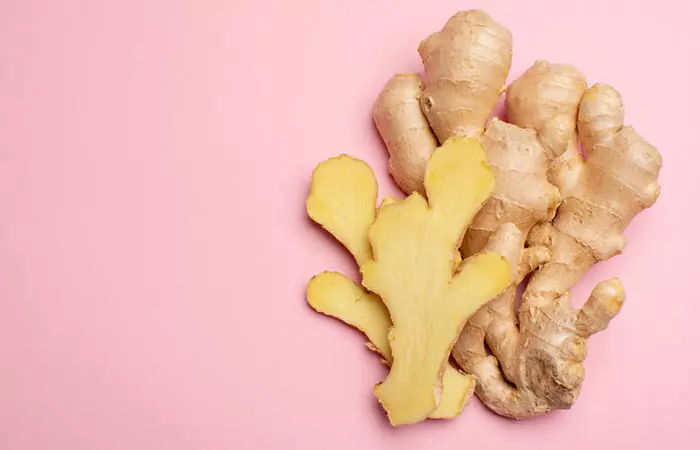
You Will Need
- 1-2 inches of ginger
- 1 cup of water
What You Have To Do
- Add 1 to 2 inches of ginger to a cup of water.
- Bring it to a boil in a saucepan.
- Simmer for about 5 minutes and strain.
- Allow the ginger tea to cool a bit before consuming it.
How Often You Should Do This
Drink ginger tea twice daily.
Why This Works
Ginger helps reduce the force and rate at which your heart contracts. It also acts as a calcium channel blocker, exhibiting a blood pressure-lowering effect (1).
2. Garlic
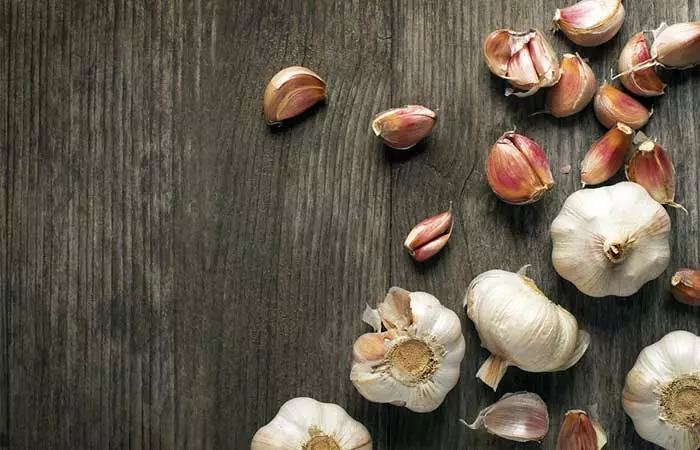
You Will Need
- 1-4 garlic cloves
- Honey (optional)
What You Have To Do
- Take one to two peeled garlic cloves.
- Chew on them and swallow.
- You can also consume garlic with honey if the flavor is too strong for you.
How Often You Should Do This
Do this 1 to 2 times daily for the desired effects.
Why This Works
Garlic helps lower high blood pressure by about 10 mmHg systolic and 8 mmHg diastolic (2).
3. Vitamins
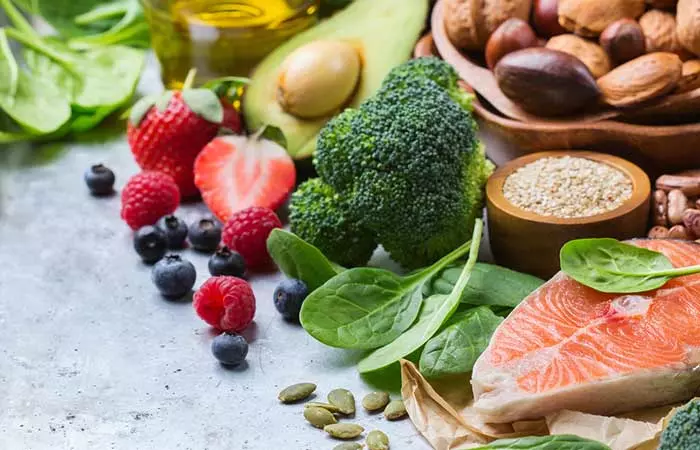
B vitamins and vitamin D are some nutrients that have an inverse effect on hypertension. According to many studies, these vitamins were found to be effective in controlling hypertension and preventing the resultant health complications (like stroke) (3), (4).
Start by consuming foods rich in these vitamins – including whole grains, eggs, dairy products, meat, legumes, dark leafy vegetables, and fatty fish. You can also opt to take supplements for these vitamins after consulting your physician.
4. Apple Cider Vinegar
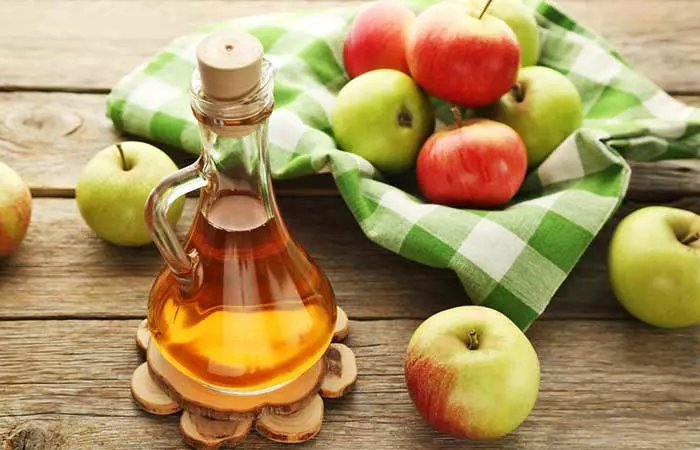
You Will Need
- 3 teaspoons of raw apple cider vinegar
- 1 glass of warm water
What You Have To Do
- Add three teaspoons of raw apple cider vinegar to a glass of warm water. Mix well.
- Drink the mixture.
How Often You Should Do This
You can drink this once daily.
Why This Works
Apple cider vinegar
helps decrease the activity of an enzyme called renin, which may otherwise contribute to high blood pressure (5).
5. Beet Juice
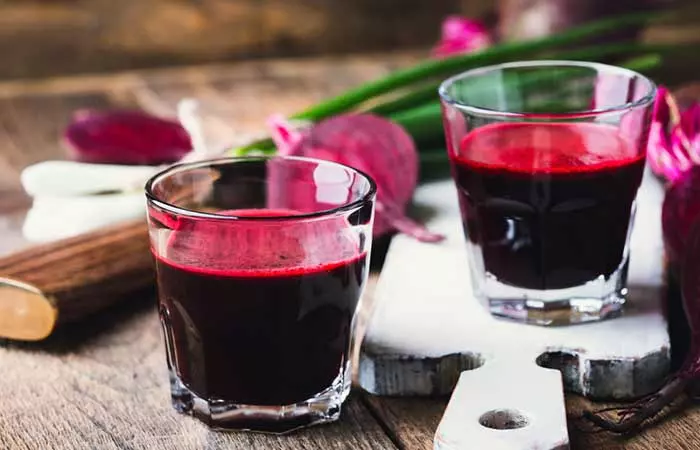
You Will Need
2 cups of fresh beet juice
What You Have To Do
- Extract two cups of fresh beet juice.
- Drink the juice.
How Often You Should Do This
Drink beet juice twice daily for best results.
Why This Works
The inorganic nitrates in beet juice may have antihypertensive properties. Recent studies also show that these antihypertensive properties of beets could be independent of their nitrate content (6).
6. Essential Oils
a. Ylang-Ylang Oil
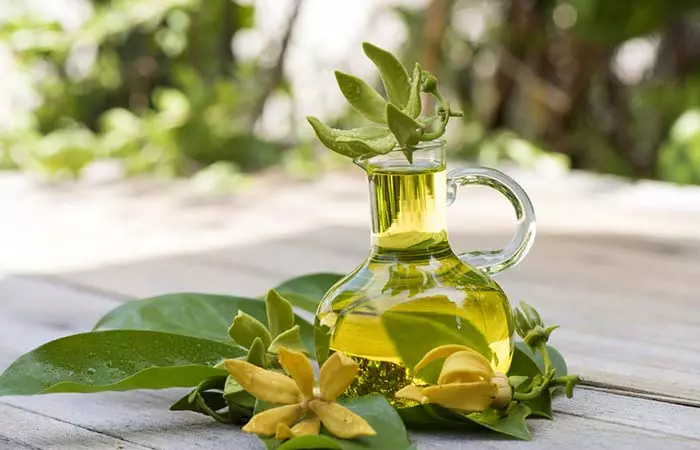
You Will Need
- 3-4 drops of ylang-ylang oil
- A diffuser
- Water
What You Have To Do
- Fill a diffuser with water.
- Add three to four drops of ylang-ylang oil to it.
- Switch on the diffuser and inhale the pleasant aroma.
How Often You Should Do This
Do this 1 to 2 times daily.
Why This Works
Ylang-ylang oil has sedative (relaxing) properties that can relieve stress. The oil reduces body cortisol levels, thereby lowering blood pressure (7).
b. Lavender Oil
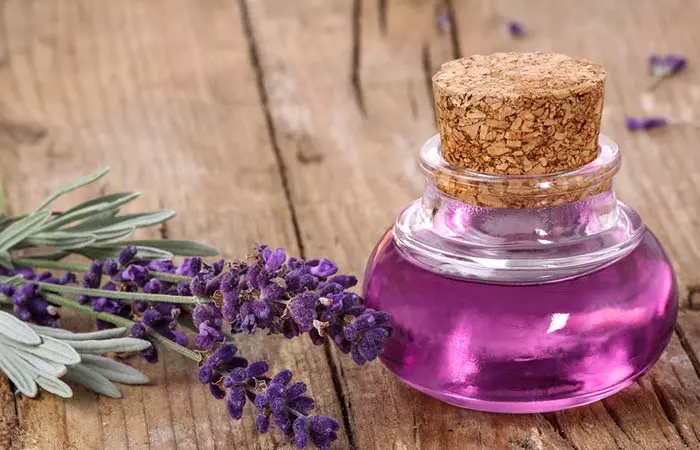
You Will Need
- 3-4 drops of lavender oil
- A diffuser
- Water
What You Have To Do
- Add three to four drops of lavender oil to a diffuser filled with water.
- Switch on the diffuser and inhale the lavender aroma.
How Often You Should Do This
D this 1 to 2 times daily.
Why This Works
Lavender oil relieves stress and reduces hypertension as a consequence (8).
7. Lemon Juice
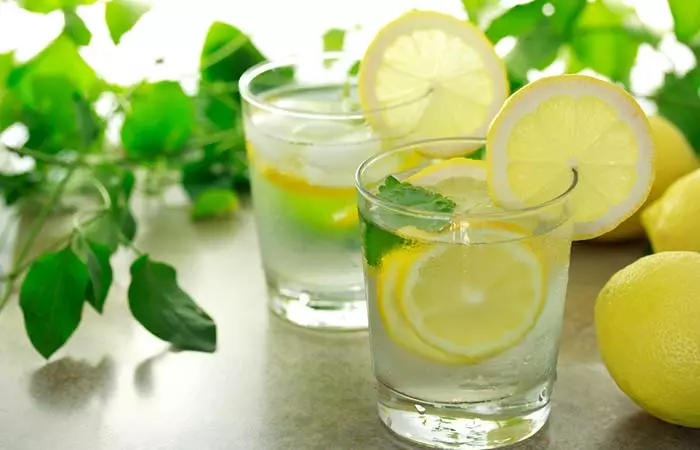
You Will Need
- ½ lemon
- 1 glass of warm water
What You Have To Do
- Squeeze the juice from half a lemon into a glass of warm water.
- Mix well and drink up.
How Often You Should Do This
Drink lemon water once daily.
Why This Works
Drinking lemon juice, along with regular physical exercise, can help lower systolic blood pressure (9).
8. Baking Soda
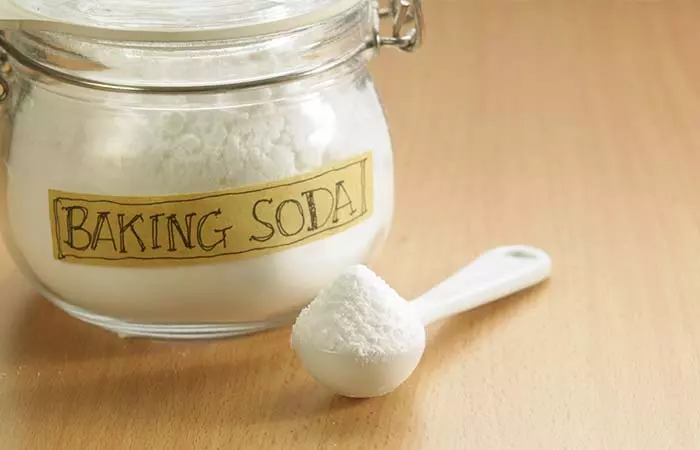
You Will Need
- ½ teaspoon of baking soda
- 1 glass of water
What You Have To Do
- Mix half a teaspoon of baking soda in a glass of water.
- Drink the solution.
How Often You Should Do This
Once daily, but only for a week. You can follow this once every two months. In case you experience any side effects, please stop use and consult your doctor immediately.
Why This Works
While long-term use of this remedy might have a reverse effect and can cause your blood pressure to rise, short-term intake of sodium bicarbonate has an antihypertensive effect (10). However, in case high sodium content is an issue for you, reducing sodium intake is advisable and you should avoid this remedy.
9. Cinnamon
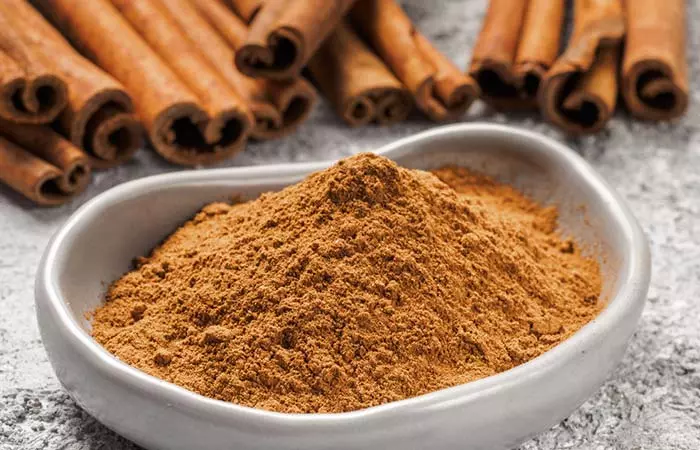
You Will Need
- ½ – 1 teaspoon of cinnamon powder
What You Have To Do
Add the cinnamon powder to your favorite cuisines and smoothies.
How Often You Should Do This
You must do this once daily.
Why This Works
A study published in the journal Nutrition states that short-term consumption of cinnamon can lower systolic and diastolic blood pressure (11).
10. Coffee
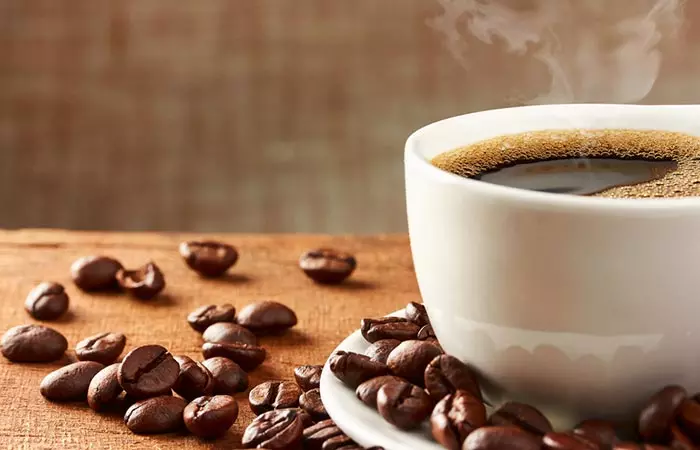
You Will Need
- 1-2 teaspoons of coffee powder
- 1 cup of water
- Sugar (optional)
What You Have To Do
- Add one to two teaspoons of coffee powder to a cup of water.
- Bring it to a boil in a saucepan.
- Add a little sugar for added flavor and enjoy your cup of coffee.
How Often You Should Do This
You can drink two cups of coffee daily. Not more.
Why This Works
While excess coffee can elevate blood pressure levels, moderate intake is relatively safe and may even have a beneficial effect on hypertensive individuals (12). Nevertheless, if you are a caffeine addict and face high blood pressure, reducing caffeine intake is your best bet to regulate your blood pressure levels.
11. Green Tea
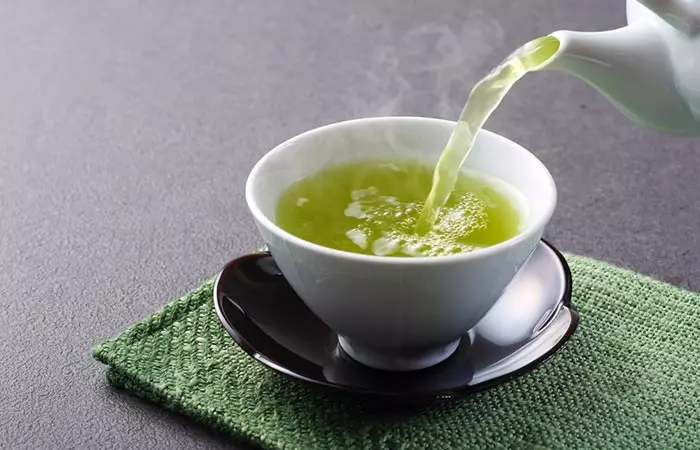
You Will Need
- ½ teaspoon of green tea
- 1 cup of hot water
What You Have To Do
- Add half a teaspoon of green tea to a cup of hot water.
- Steep for 2 to 4 minutes and strain.
- Sip on the hot tea slowly.
How Often You Should Do This
Drink green tea twice daily for optimum benefits.
Why This Works
Moderate green tea intake has a positive impact on lowering high blood pressure, thanks to green tea polyphenols that help your arteries relax (13).
Caution
Do not drink too much green tea as its caffeine content can raise your blood pressure.
 Trivia
Trivia12. Omega-3 Fatty Acids
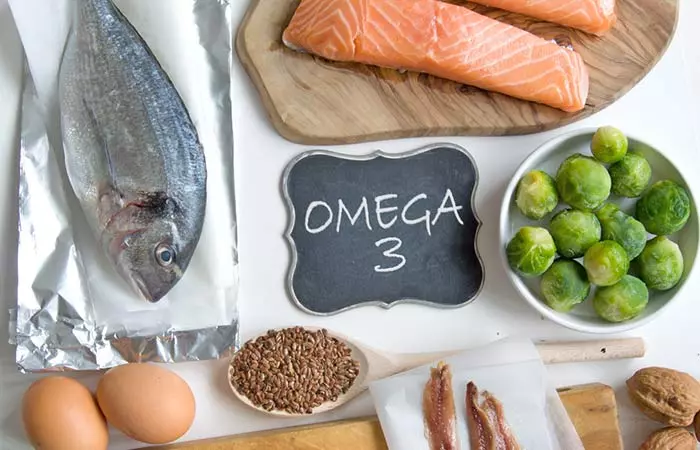
You Will Need
250-500 mg omega-3 fatty acids
What You Have To Do
Consume 250-500 mg of omega-3 fatty acids daily.
You can either consume fatty fish, flax seeds, walnuts, and chia seeds or take additional supplements for it.
How Often You Should Do This
Do this on a daily basis.
Why This Works
Omega-3 fatty acids
exhibit cardioprotective effects, which can be attributed to the presence of two long-chain essential fatty acids – docosahexaenoic acid (DHA) and eicosapentaenoic acid (EPA). Of the two, DHA helps in lowering the blood pressure and heart rate (14).
13. Herbs
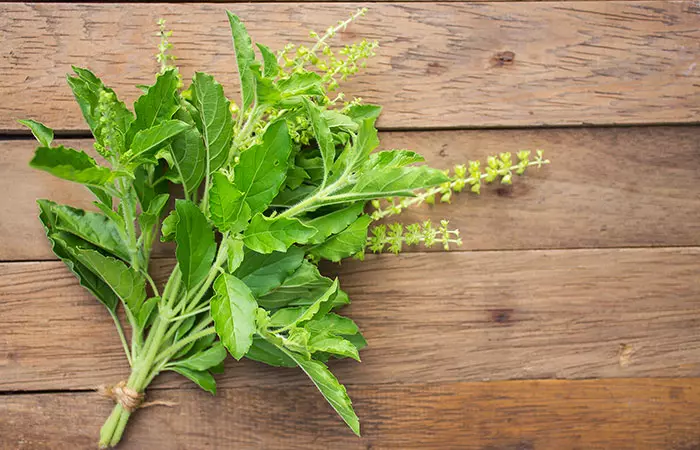
You Will Need
- 1 to 2 tablespoons of fresh herbs or 1 teaspoon of dried herbs like hawthorn, celery, or basil
- A tea infuser
- 1 cup of water
What You Have To Do
- Chop the fresh herbs or crush/grind the dried herbs.
- Place the herbs into a tea infuser.
- Boil some water and pour it over them.
- Let them steep for 5 to 10 minutes.
- Remove the infuser and enjoy your herbal tea.
How Often You Should Do This
Drink the herbal tea or consume the selected herb once daily.
Why This Works
These herbs contain flavonoids, phthalides, and eugenol that help relax blood vessels, reduce inflammation, and combat oxidative stress (15), (16), (17). This may help regulate blood pressure and reduce cardiovascular disease risk.
You can follow these remedies, but don’t depend on them alone. The same goes for prescription drugs. Hypertensive individuals must also follow a strict diet to treat their condition. This might also help them in weight loss.
Best Foods For Treating High Blood Pressure
What you eat and avoid has a huge impact on your blood pressure levels.
What To Eat
Foods that have a positive impact on treating high blood pressure are:
- Green leafy vegetables high in potassium like spinach, kale, and romaine lettuce
- Flavonoid-rich berries such as blueberries, raspberries, and strawberries
- Beets
- Skim milk and yogurt
- Oatmeal
- Bananas (for increasing potassium intake)
- Fish like salmon and mackerel that are rich in omega-3 fatty acids
- Dark chocolate
You must also restrict your consumption of certain foods.
What Not To Eat
- Deli meat
- Tomatoes
- Sugary foods
- Canned or packaged foods
- Junk food
- Excess alcohol
- Excess caffeine
- Processed snacks
- Sauces
- Pickles
Making lifestyle changes, acupuncture, and massage therapy also helps in the long run. Here are some tips you can follow.
Prevention Tips
- Exercise 30 to 60 minutes every day, for at least 5 days a week.
- Manage your weight.
- Get sufficient sleep.
- Reduce stress by doing yoga.
- Cut back on or quit drinking alcohol.
- Cut back on or quit smoking.
These lifestyle changes support overall heart health and well-being, in addition to reducing hypertension.
Elvie Lins, a photographer and blogger, shares how she was able to lower her blood pressure at home without having to depend on any pills: “I realize how my life was in danger when she [an expert] asked me if I wanted to take a pill to lower my blood pressure and that once I start, it will be forever (i).” Instead, she decided to cut salt from her diet and exercised daily to stay active. She continues, “I do have SEA SALT to taste but not often. I avoided other types of synthetic salts. Oftentimes, my food is only seasoned with lemon juice, natural herbs, and sea salt in a minimum portion.”
These are some effective preventive measures that help minimize hypertension. In the next section, we will explore common myths surrounding high blood pressure.
Common Misconceptions About Hypertension
Here are some common misconceptions about hypertension:
Myth 1: Hypertension Only Affects Older People
Fact: Contrary to popular belief, high blood pressure is not limited by age. It can affect anyone, from children to the elderly, making it a health concern that we all need to be aware of.
Myth 2: All Salt Is Bad
Fact: It’s a common misconception that all salt is bad. In reality, our bodies need some sodium for good health. By focusing on reducing our sodium intake rather than avoiding salt altogether, we can make healthier dietary choices.
Myth 3: Hypertension Has Obvious Symptoms
Fact: Although some people believe they can identify if they have high blood pressure by symptoms like headaches or nosebleeds, hypertension often shows no signs at all, which is why it is known as “the silent killer.”
Myth 4: Hypertension Is Always Hereditary
Fact: While genetics may play a crucial part, our lifestyle choices have a significant impact on our blood pressure levels. By making informed decisions about our diet, exercise, and smoking and drinking habits, we can actively manage our health.
Myth 5: Weight Loss Cures Hypertension
Fact: Although weight loss can dramatically lower blood pressure, it is not a solution in and of itself; instead, a combination of lifestyle modifications and, if needed, medication is often needed.
Infographic: 5 Easy Remedies To Manage High Blood Pressure
Stress, alcohol consumption, and poor lifestyle can lead to high blood pressure. If left uncontrolled, it may increase your risk of heart disease and stroke. Along with medication, there are simple ingredients that can help keep your blood pressure levels under control. Check out the infographic below to know more.

Illustration: StyleCraze Design Team
Excessive force on the walls of the arteries by the traveling blood leads to high blood pressure. It may cause a stroke, kidney disease, vision loss, and heart failure. Age, family history, ethnic background, obesity, sedentary lifestyle are possible causes of high blood pressure. While individuals affected with hypertension don’t experience any major symptoms, some can see symptoms like headaches, nausea or vomiting, dizziness, and palpitations. Over-the-counter medications can help control high blood pressure. In addition, maintaining a healthy lifestyle and exercising every day can keep high blood pressure at bay. Always get advice from your healthcare practitioner to create a treatment plan that best suits your specific medical needs.
For any more queries related to hypertension, do not hesitate to get in touch with us through the comments box below.
Frequently Asked Questions
When is your blood pressure difficult to control?
Your blood pressure can be difficult to control if you are suffering from resistant hypertension. If more than three antihypertensive medications fail to keep your blood pressure under control, you could be suffering from resistant hypertension. For other individuals, your blood pressure can be difficult to control if you are availing inadequate or inappropriate treatment.
Can high blood pressure cause nosebleeds?
Yes, high blood pressure can also result in nosebleeds. In fact, a bleeding nose can be one of the many symptoms that surface during a medical emergency associated with hypertension.
How long does it take to control your blood pressure?
By following the treatment plan provided to you and making a few lifestyle changes, you can control your blood pressure in about 1 to 3 months.
How does high blood pressure affect pregnancy?
If you develop high blood pressure or hypertension during pregnancy, your heart and kidneys are exposed to extra stress that can lead to serious medical complications like kidney diseases, heart diseases, and stroke.
When to see a doctor for hypertension treatment?
Seeking medical attention is highly recommended for treating hypertension. However, in some situations, it becomes even more important to call your doctor immediately. This includes:
• Your blood pressure remains high despite treatments
• If you develop symptoms like palpitations, nausea, nose bleeding, shortness of breath, dizziness, etc. that hint at a medical emergency.
Is walking good for individuals with high blood pressure?
Walking may be the key to better heart health for individuals with high blood pressure. According to a study, walking 10,000 steps or more every day, regardless of the amount or intensity of exercise one gets, can significantly drop blood pressure in hypertensive individuals (18). You can also practice deep breathing, meditation and mindfulness, and relaxation techniques to regulate your blood pressure levels.
Can drinking water lower blood pressure?
Yes, consistently hydrating is an effective way to help lower blood pressure (19).
Illustration: Simple & Natural Ways To Lower Your Blood Pressure At Home
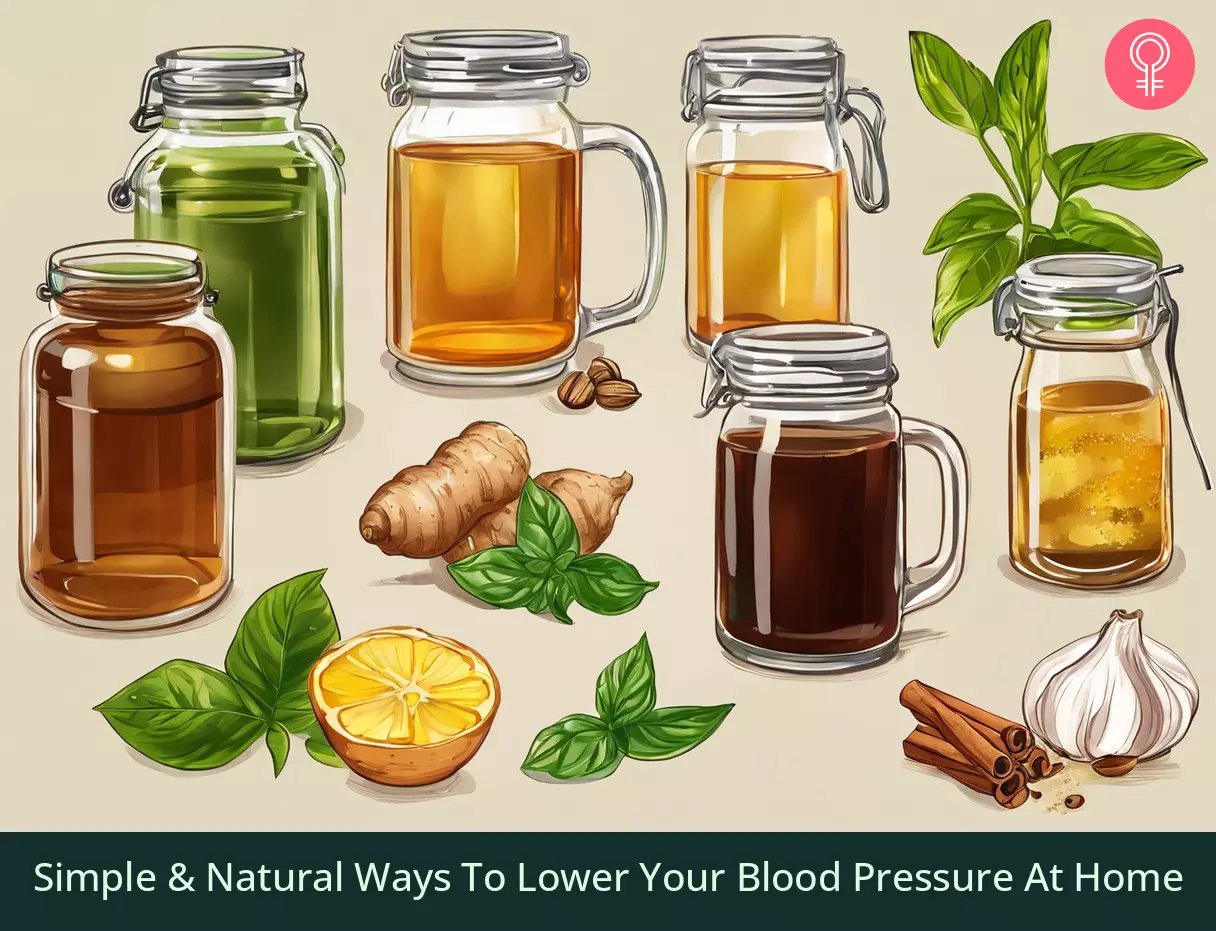
Image: Stable Diffusion/StyleCraze Design Team
Worried about your blood pressure levels? Discover all about the key aspects of hypertension and protect your future health by watching the following video.
Personal Experience: Source
StyleCraze's articles are interwoven with authentic personal narratives that provide depth and resonance to our content. Below are the sources of the personal accounts referenced in this article.
i. How I Deal with High Blood Pressure Naturallyhttps://medium.com/illumination/how-i-deal-with-high-blood-pressure-naturally-2a2f0ecf36b4
References
Articles on StyleCraze are backed by verified information from peer-reviewed and academic research papers, reputed organizations, research institutions, and medical associations to ensure accuracy and relevance. Read our editorial policy to learn more.
- “Ginger lowers blood pressure through blockade of voltage-dependent calcium channels” Journal of Cardiovascular Pharmacology and Therapeutics, US National Library of Medicine
- “Potential of garlic (Allium sativum) in lowering high blood pressure: mechanisms of action and clinical relevance” Integrated Blood Pressure Control, US National Library of Medicine
- “Effectiveness of B vitamins on the control of hypertension and stroke events of SHRSP rats” Journal of Dietary Supplements, US National Library of Medicine
- “Vitamin supplementation and blood pressure in Type 2 diabetes” Diabetic Medicine, US National Library of Medicine
- “Antihypertensive effects of acetic acid and vinegar on spontaneously hypertensive rats” Bioscience, Biotechnology, and Biochemistry, US National Library of Medicine
- “The Nitrate-Independent Blood Pressure-Lowering Effect of Beetroot Juice: A Systematic Review and Meta-Analysis” Advances in Nutrition, US National Library of Medicine
- “Essential oil inhalation on blood pressure and salivary cortisol levels in prehypertensive and hypertensive subjects” Evidence-Based Complementary and Alternative Medicine, US National Library of Medicine
- “Effect of lavender scent inhalation on prevention of stress, anxiety and depression in the postpartum period” Iranian Journal of Nursing and Midwifery Research, US National Library of Medicine
- “Effect on Blood Pressure of Daily Lemon Ingestion and Walking” Journal of Nutrition and Metabolism, US National Library of Medicine
- “Sodium bicarbonate and sodium chloride: effects on blood pressure and electrolyte homeostasis in normal and hypertensive man” Journal of Hypertension, US National Library of Medicine
- “Effect of short-term administration of cinnamon on blood pressure in patients with prediabetes and type 2 diabetes” Nutrition, US National Library of Medicine
- “The impact of coffee consumption on blood pressure, cardiovascular disease and diabetes mellitus” Expert Review of Cardiovascular Therapy, US National Library of Medicine
- “Effect of green tea consumption on blood pressure: A meta-analysis of 13 randomized controlled trials” Scientific Reports, US National Library of Medicine
- “Omega-3 fatty acids and hypertension in humans” Clinical and Experimental Pharmacology and Physiology, US National Library of Medicine
- “Roles and Mechanisms of Hawthorn and Its Extracts on Atherosclerosis: A Review” Frontiers in Pharmacology
- “Beneficial effects of celery (Apium graveolens) on metabolic syndrome: A review of the existing evidences” Phytotherapy Research
- “Ocimum: The Holy Basil Against Cardiac Anomalies” The Ocimum Genome
- “Walking 10, 000 steps/day or more reduces blood pressure and sympathetic nerve activity in mild essential hypertension.” Hypertension Research, US National Library of Medicine
- “Effect of increased daily water intake and hydration on health in Japanese adults.“, US National Library of Medicine
Read full bio of Caroline Duncan
Read full bio of Shaheen Naser
Read full bio of Arshiya Syeda
Read full bio of Dipti Sharma





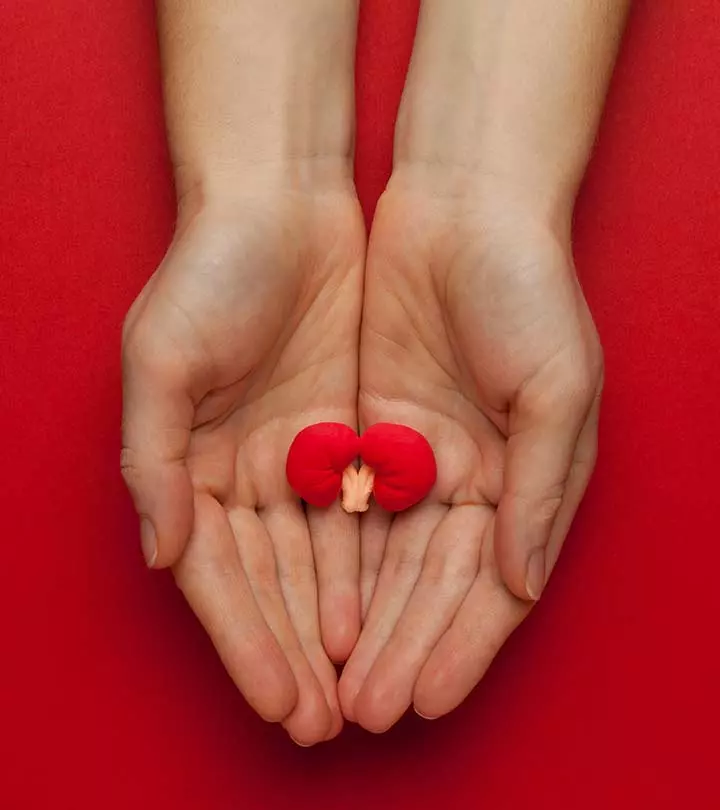

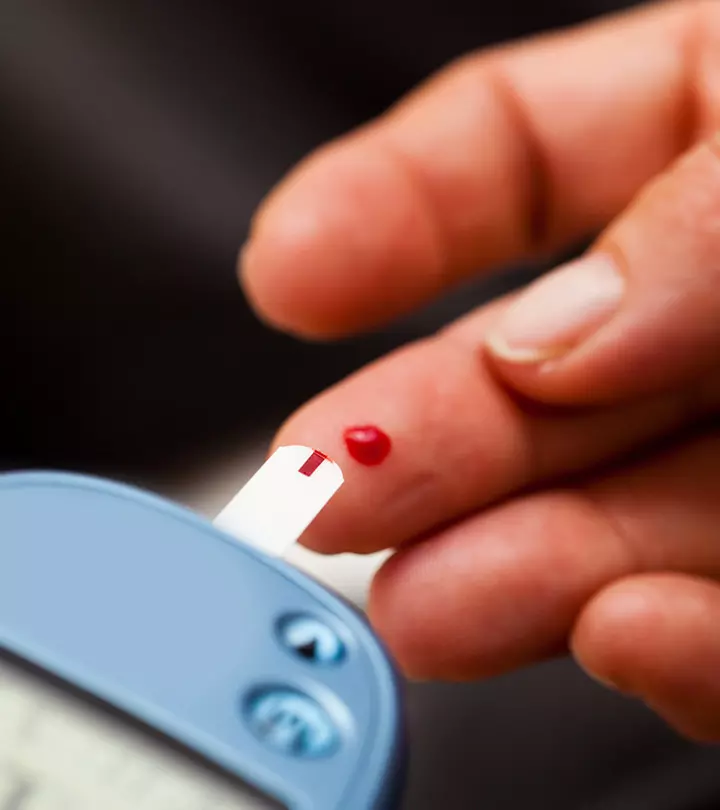
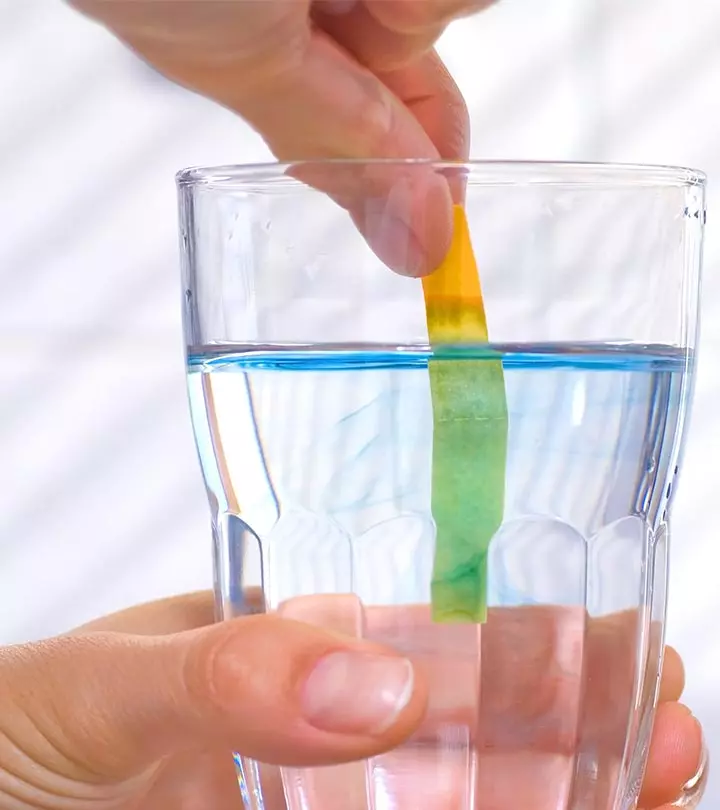


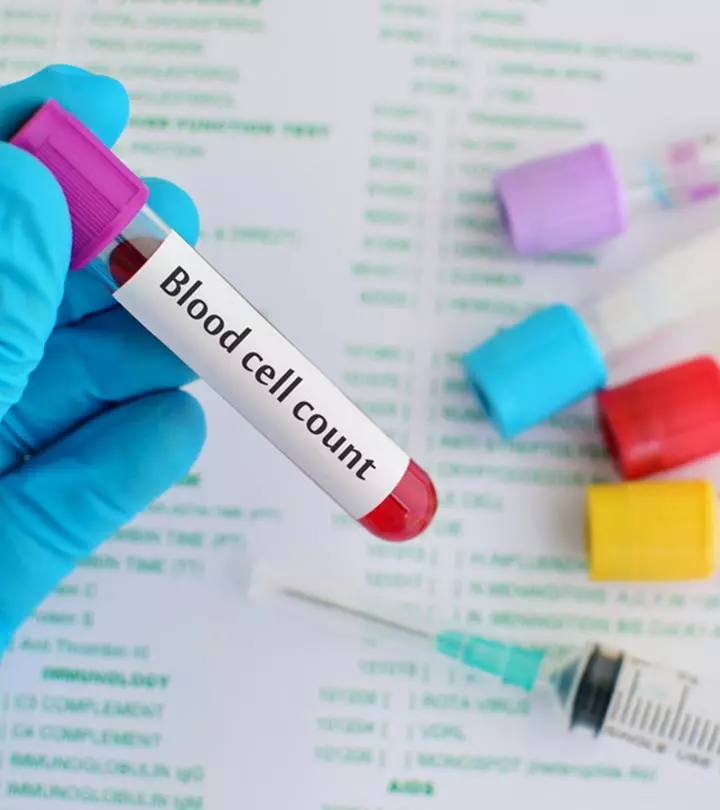

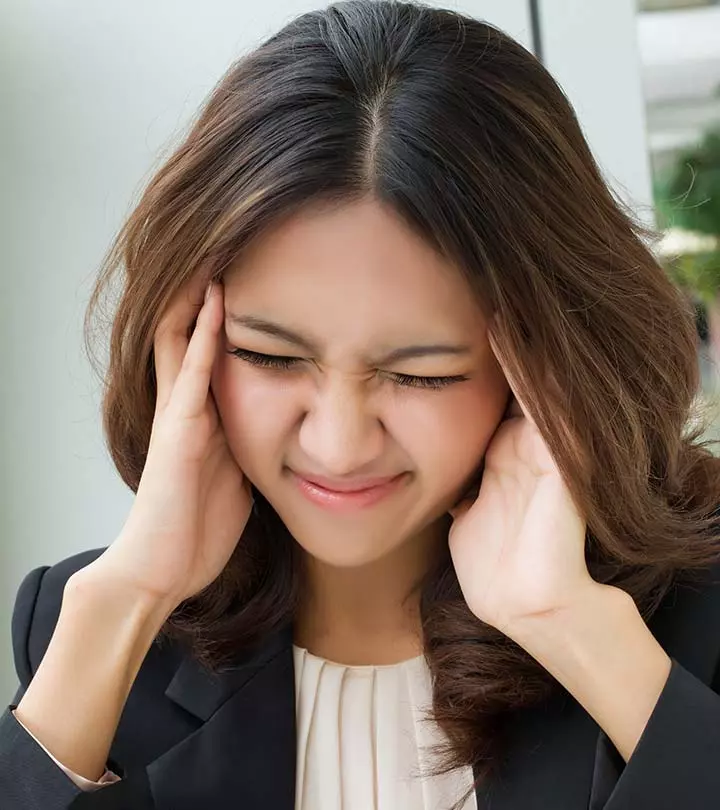
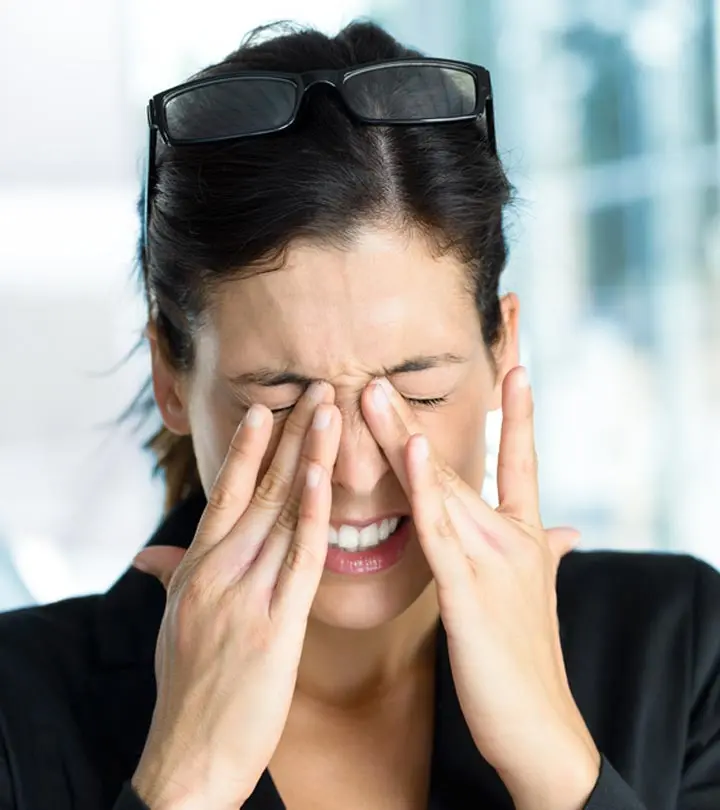

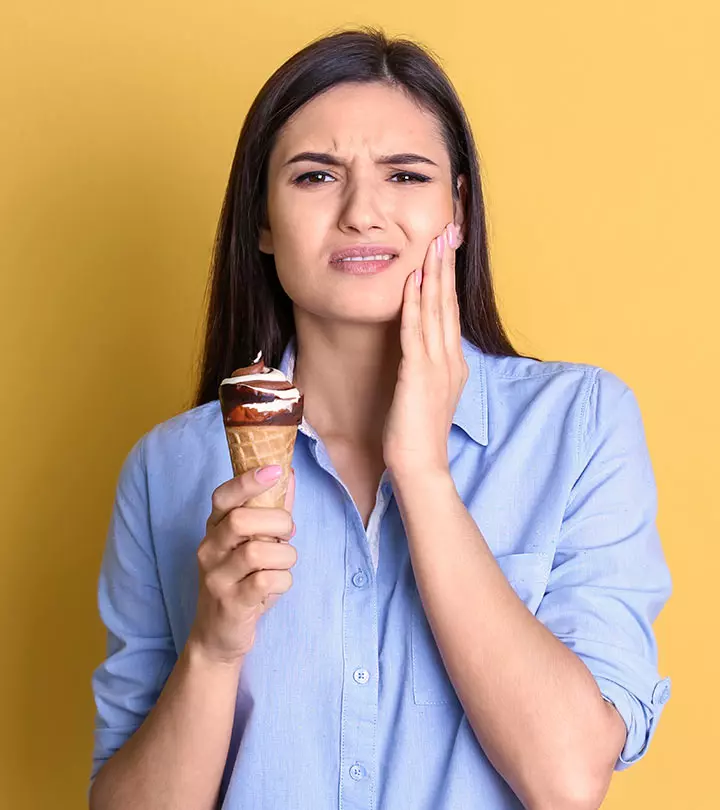


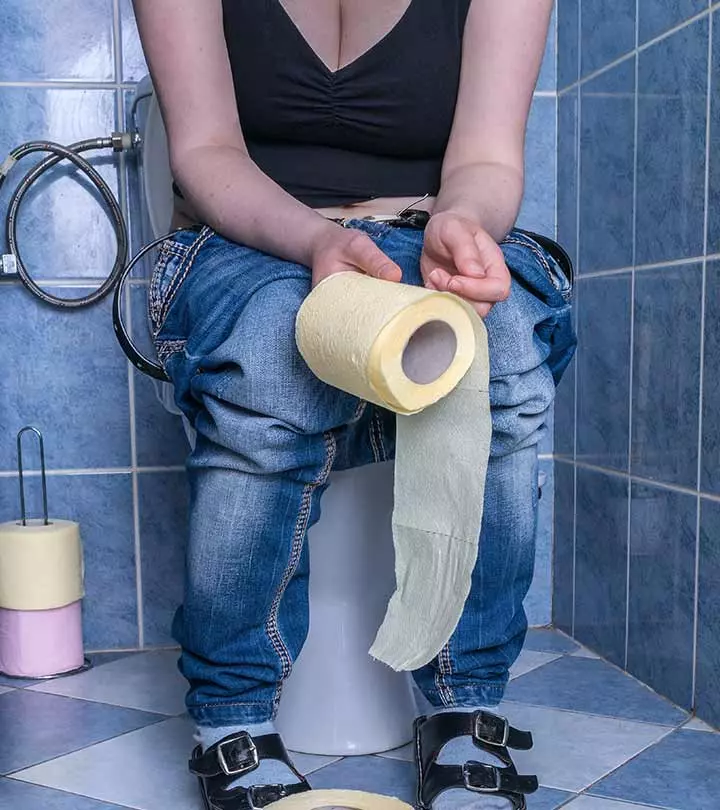
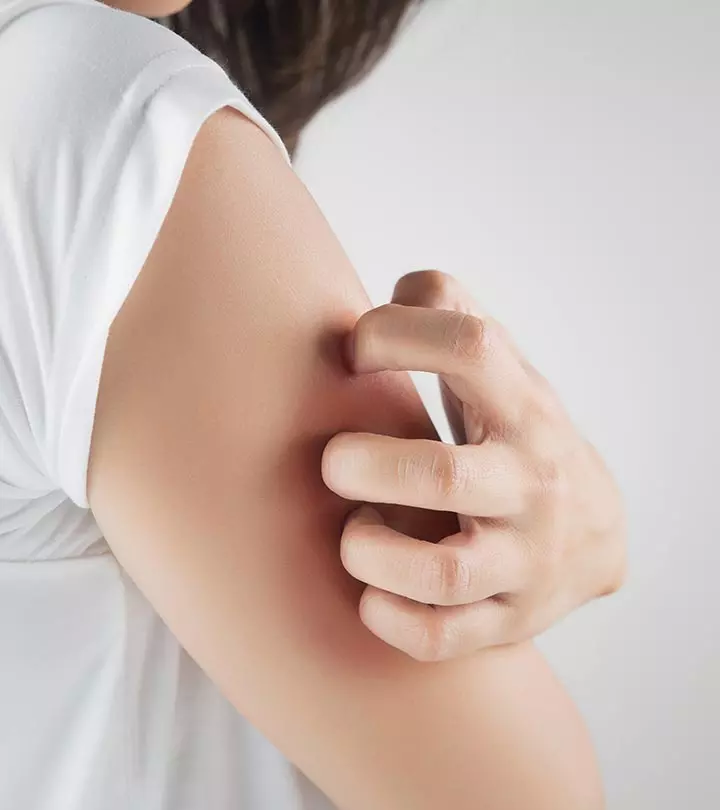
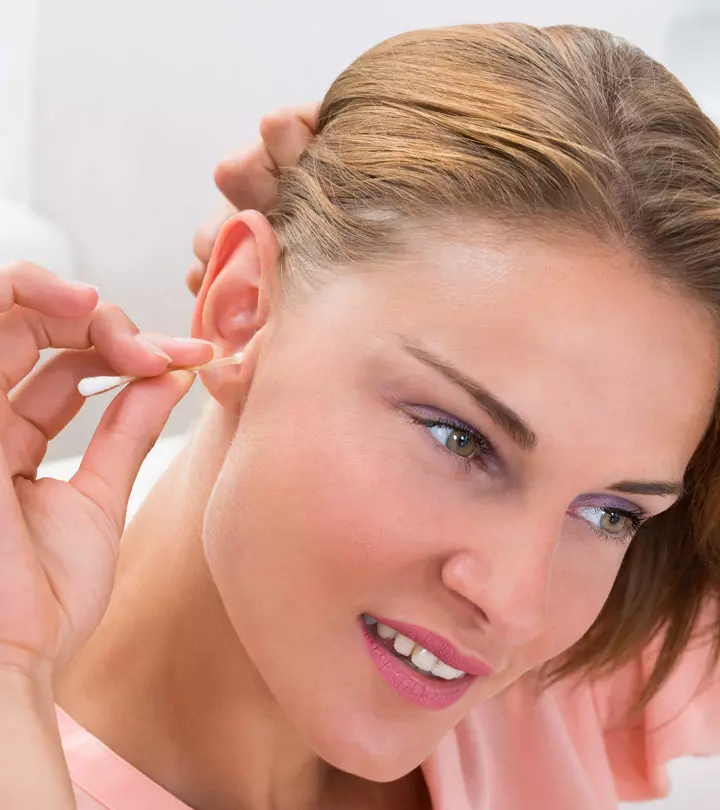
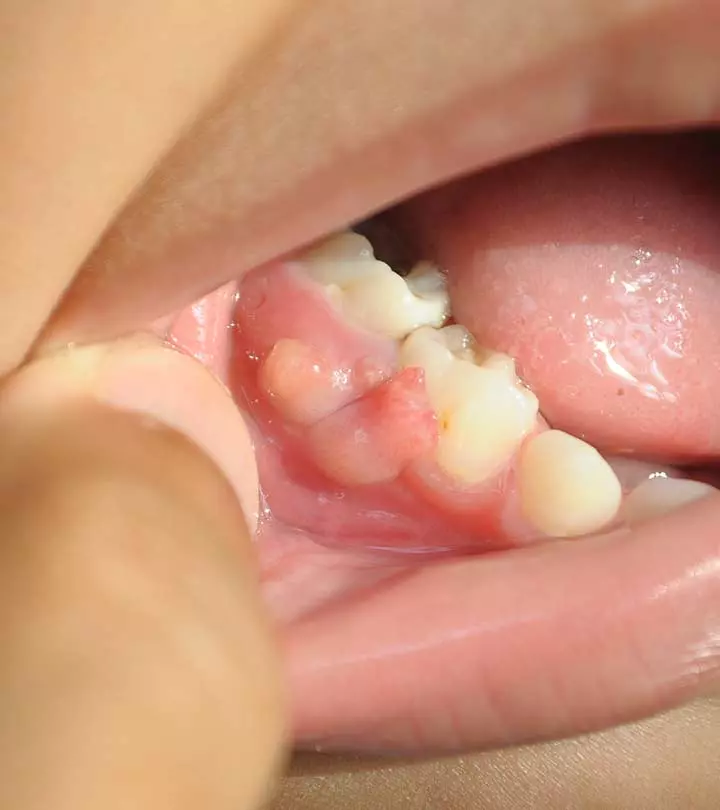



Community Experiences
Join the conversation and become a part of our empowering community! Share your stories, experiences, and insights to connect with other beauty, lifestyle, and health enthusiasts.